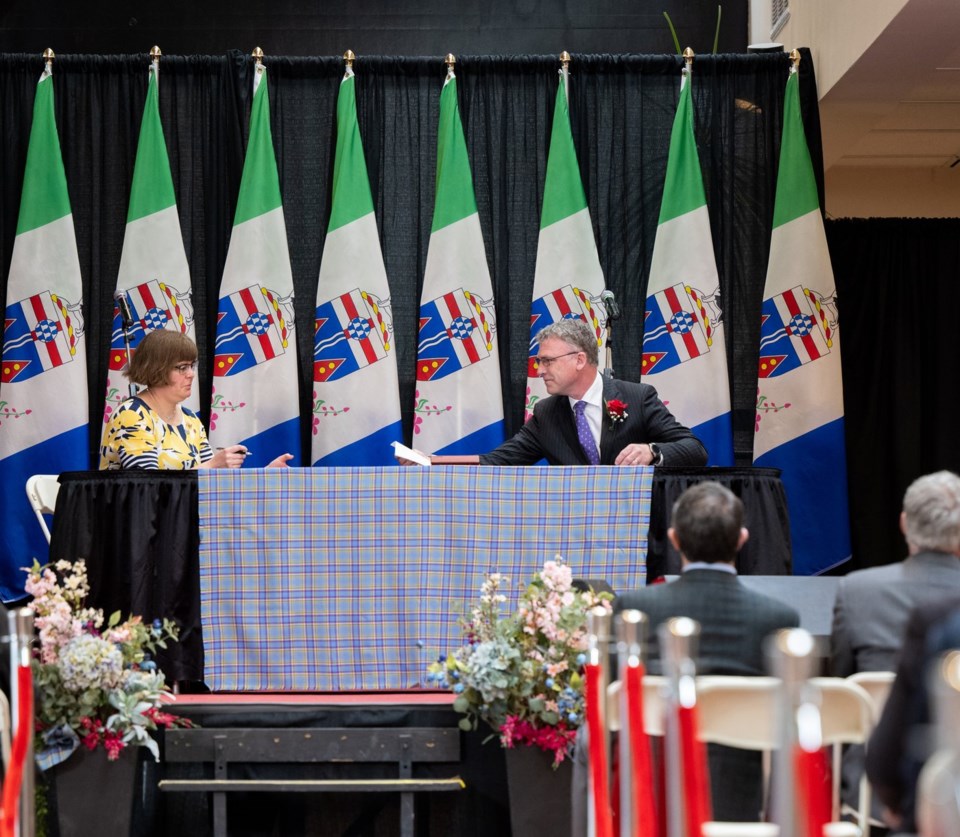DAWSON CITY, Y.T. — A day before his investiture ceremony, Darwyn Lynn stared at a copy of the Oath of Allegiance to King Charles he was required to take to officially take on his new role of councillor in the Yukon, wondering why the pledge was necessary.
"I actually sat there and I looked at it, and I read it probably about 15 times, and it didn't get any easier to do," he said, adding that, as an Indigenous man, the history that the Crown has had with his people was lingering on his mind.
So on Nov. 5, he refused to take the oath. His fellow council members in Dawson City and mayor-elect Stephen Johnson followed suit, halting governance in the Yukon's second-largest municipality.
But on Friday, about 10 days before their deadline to take the oath, the Yukon announced it had amended its Municipal Act because the territory agreed elected leaders shouldn't have to only pledge their allegiance to King Charles.
Instead, the territory said municipal leaders in the Yukon now have the option of taking an Oath of Allegiance to the Constitution or to the monarch during their swearing-in ceremonies.
"The change that we've made will ensure everyone in the Yukon feels comfortable when stepping into the important role of municipal council in particular," Community Services Minister Richard Mostyn said during a news conference.
"This allows elected municipal officials to take the Oath of Allegiance in a way that aligns with society's broader values and cultural identities .... This change should help Yukon First Nations feel welcome and respected."
Mostyn said council members will still be required to take an oath of office within 40 days after an election, with the other oath of their choosing.
The act says if a person elected to council fails to take the oaths within 40 days, “their election shall be considered null and void and their office vacant.”
Lynn said he appreciates that the territory has made the change and plans to swear an oath to the Constitution next week.
Lynn said the Yukon didn't do public consultations to make the change to regulations and acknowledged there were some people in the community who didn't agree with Dawson City council.
But that's why he said the option of taking an oath to the King is still in the act.
"Everybody has the right to have their opinion and option. And that is the great part about our country," he said.
Mostyn said during consultations the Yukon cabinet found similar regulations in Ontario and Quebec that allow elected officials to take alternative oaths.
For example, the Public Service of Ontario Act says: "A public servant who identifies as an Indigenous person is exempt" from affirming or swearing "his or her allegiance to the Crown if the public servant asserts that making the oath or affirmation would be inconsistent with his or her views regarding the relationship between the Crown and Indigenous Peoples."
Lynn said as a new councillor for Dawson, the help he has received from the territory has left him feeling positive for what's next in the Yukon.
"It shows that we are a united team, and I'm happy with that," he said.
This report by The Canadian Press was first published Nov. 29, 2024.
The Canadian Press



